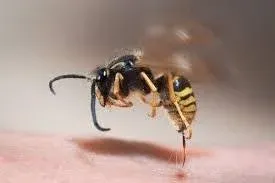Spiders are a natural part of many households, and while most are harmless, their bites can cause discomfort, allergic reactions, or even serious health issues in rare cases. Fortunately, preventing spider bites at home is possible with a few simple precautions. By understanding where spiders hide and taking proactive safety measures, you can reduce risks and keep your family safe.
Why Spider Prevention Matters
Most spiders are not aggressive and only bite in self-defense. However, for young children, the elderly, or people with allergies, even a mild bite can cause unnecessary pain or complications. Venomous species, like the black widow or brown recluse, make prevention even more important. By learning proper safety steps, you can lower the chance of unwanted encounters.
Common Places Spiders Hide Indoors
Spiders tend to hide in quiet, undisturbed areas. Some of the most common indoor hiding spots include:
Dark corners of rooms or basements
Behind furniture or under beds
Closets and storage boxes
Attics and crawl spaces
Inside shoes, clothing, or towels left on the floor
Being aware of these areas helps you clean and check regularly, reducing the chance of spider encounters.
Safety Tips to Prevent Spider Bites at Home
1. Keep Your Home Clean
Regular dusting, vacuuming, and decluttering make your home less inviting to spiders. Pay attention to corners, ceiling edges, and behind large furniture.
2. Seal Entry Points
Spiders often enter through small cracks, windows, or gaps in doors. Use caulk, weather stripping, or door sweeps to block entry points.
3. Store Items Properly
Keep clothing, shoes, and blankets off the floor. Store seasonal items in sealed containers instead of cardboard boxes, which spiders can easily enter.
4. Shake Out Clothes and Shoes
Before wearing shoes or clothes that have been sitting unused, shake them out to ensure no spider is hiding inside.
5. Use Natural Repellents
Essential oils like peppermint, tea tree, or eucalyptus are known to repel spiders. Spray diluted oils around windows, doors, and baseboards.
6. Reduce Outdoor Attractants
Spiders often come indoors from outside. Keep outdoor lights dim (since they attract insects, which attract spiders), trim plants close to your home, and move woodpiles away from your house.
7. Wear Protective Clothing When Cleaning
When reaching into storage areas or dusty corners, wear gloves and long sleeves to protect your skin.
What to Do if You Spot a Spider
If you see a spider in your home:
Avoid panicking or swatting it directly.
Safely remove it using a jar and a piece of paper.
Release it outside, away from your home.
If you suspect a venomous spider, contact pest control for safe removal.
When to Seek Medical Help After a Spider Bite
Despite prevention efforts, bites may still happen. Most are mild, but seek medical help if:
Pain and swelling worsen
The bite area develops blisters or open sores
Symptoms like nausea, fever, or muscle cramps appear
A young child or elderly family member is bitten
Final Thoughts
Spiders play a valuable role in controlling pests, but their presence in your home can still lead to painful bites. By keeping your space clean, sealing entry points, and using protective habits, you can greatly reduce the risks. Following these safety tips for preventing spider bites at home ensures peace of mind and a safer environment for your family.






